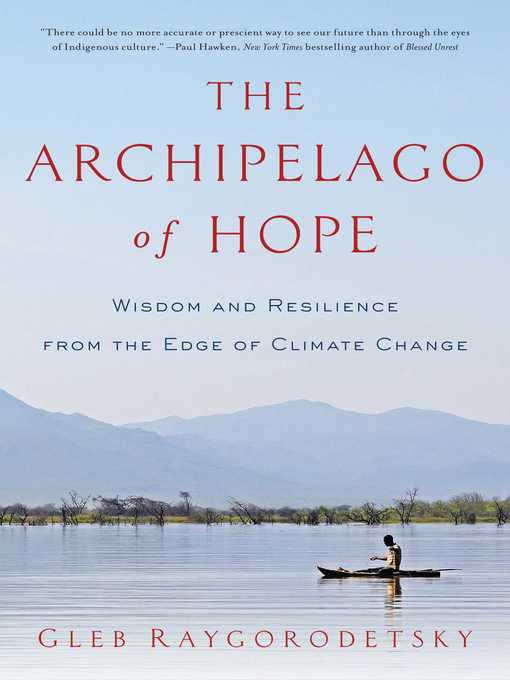
The Archipelago of Hope
کتاب های مرتبط
- اطلاعات
- نقد و بررسی
- دیدگاه کاربران
نقد و بررسی

September 15, 2017
Indigenous peoples testify to the realities of climate change.For the past 20 years, environmentalist Raygorodetsky--a research affiliate at the POLIS Project on Ecological Governance at the University of Victoria and executive director of the Indigenous Knowledge, Community Monitoring, and Citizen Science Branch of the Department of Environment and Parks, Alberta--has been traveling to indigenous communities around the world to monitor their experiences of climate change. In his revealing debut book, he reports on his findings from visits to Finland, Russia, Ecuador, Thailand, and Canada, vividly portraying the communities' ecologies, livelihoods, and "intimate understanding[s] of landscapes and seascapes." Indigenous peoples, the author writes, although comprising only 4 percent of the world's population, care for more than a fifth of the Earth's surface, environments teeming in biodiversity. Their traditional knowledge has allowed them to adapt to the challenges of climate change. In northern Lapland, for example, changes in ice and snow have had an impact on the Skolt Sami reindeer herders, who confront shortened snow seasons and freezing rain that encases pastures and leads to reindeers' starvation. Like other indigenous groups, the Skolts rely partly on traditional knowledge and partly on modern tools, such as meteorological radio reports, to track weather patterns. They also collaborate with governmental and nongovernmental organizations to intervene in biocultural decisions. On the Yamal Peninsula of Siberia, reindeer herders and environmental NGOs vigorously protested Soviet plans to build a pipeline through the region. Public hearings led to a decision to construct an elevated pipeline that allowed reindeer herds to pass beneath without disruption. Many advocacy groups, such as the Indigenous Peoples Climate Change Assessment, the Association for Nature and Sustainable Livelihoods, and Land Is Life, press for the development of "culturally appropriate strategies to cope with climate change and to inject local voices into the global climate change discourse." Besides ancestral wisdom, spiritual beliefs, and traditional land use, the communities' participation in influential NGOs and activism justifies Raygorodetsky's message of hope. An encouraging exploration of how ancestral wisdom and political savvy have led to positive environmental policies.
COPYRIGHT(2017) Kirkus Reviews, ALL RIGHTS RESERVED.

October 15, 2017
Raygorodetsky, a specialist in biocultural diversity conservation, records his visits with indigenous peoples in Finland, Russia, Ecuador, Myanmar, and Canada. He shares riveting stories of their lives and different cultures, how they have adapted to harsh environments and are coping with outside entities that attempt to exploit natural resources such as fossil fuels, and how they have lived in sync with the environment for generations, adjusting to lifestyles that are a part of the natural ecosystem. According to the author, these lessons can be learned by all as we face ecological issues, including global climate change. His goal is to remind readers to respect and protect traditional knowledge of indigenous peoples and to learn how to care for the Earth as allies in preserving the planet. VERDICT Filled with admiration for those at the center of his study, Raygorodetsky delivers a valuable addition for all environmental collections and readers interested in cultural studies and international relations.--Patricia Ann Owens, formerly at Illinois Eastern Community Coll., Mt. Carmel
Copyright 2017 Library Journal, LLC Used with permission.

























دیدگاه کاربران